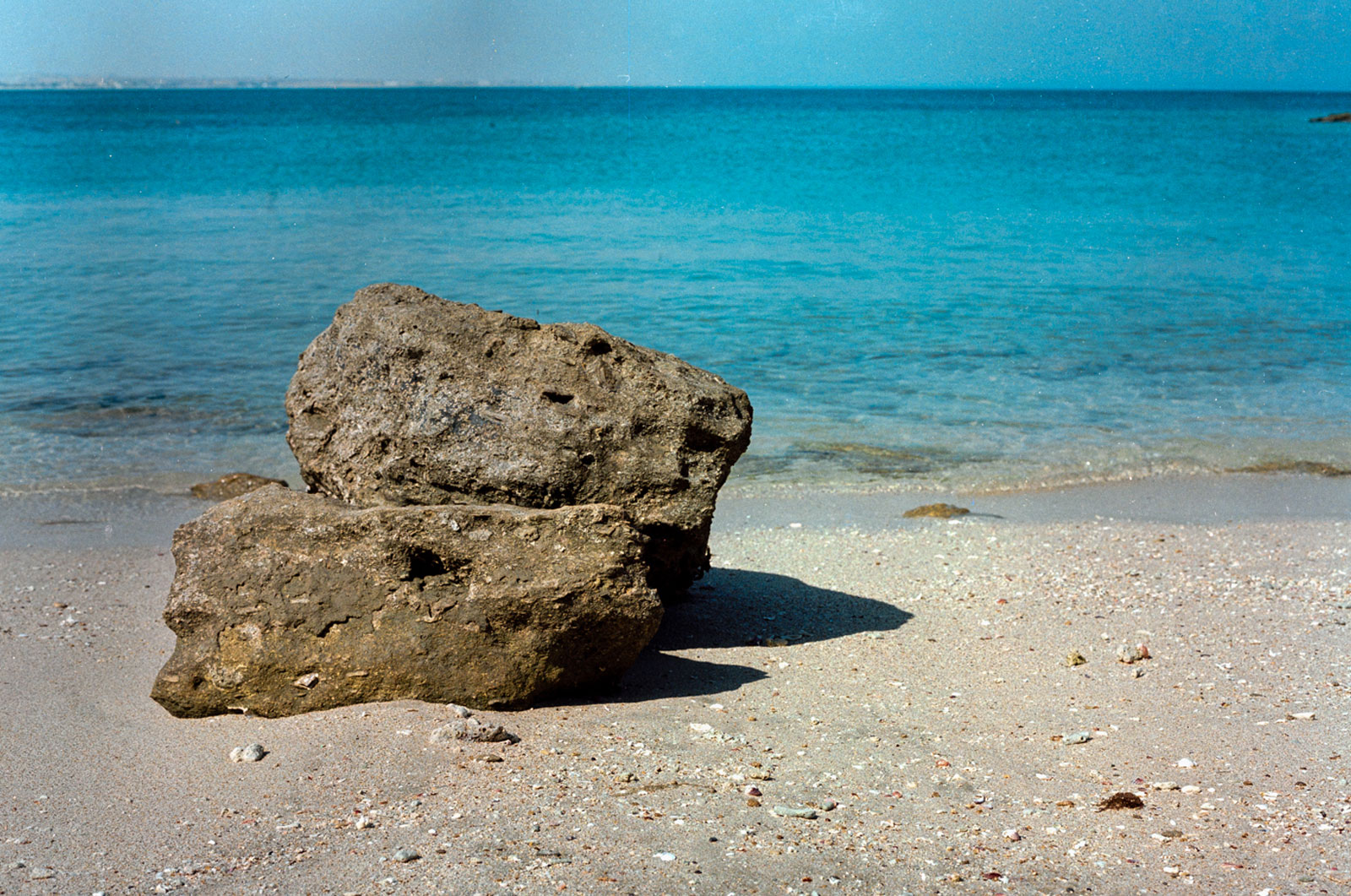A Fragment, by Roberto Burgos Cantor
Emiro Martínez-Osorio and Julio Olaciregui
PORTFOLIO: LATIN AMERICA AND THE CARIBBEAN
Translators’ Note:
This passage is a translation, into English and French, of the opening fragment of Roberto Burgos Cantor’s novel El patio de los vientos perdidos (1984). Like many other writers of his generation, in the 1960s Burgos Cantor read works by the most notable Latin American novelists of the 20th century, including Julio Cortazar, Guillermo Cabrera Infante, and Gabriel García Márquez. However, unlike his predecessors, when he published his first novel, Burgos Cantor didn’t open his work with an epigraph, a note to the reader, or a table of instructions; instead, he began it with a fragment containing his ars poetica.
Translated by Emiro Martínez-Osorio
Transparencies interrupted by the changing aspect of silver
shifting to bronze. Algae, mangroves, coelenterates, fish drying on the coarse grey sand.
The stone is dreaming, it does not sing. Gutted eyes
pour themselves on the unreality of this unprotected memory.
The village rises, it floats in the stillness of a harsh light,
only its reflection remains: movement of a blind fish that crashes
against the waters and disappears into the seventh moon. Everything
vanishes. Small animals devour the clearness.
Our vision dissipates into the warm glow it leaves adrift.
It sets the sea birds on fire. These are the signs of our arrival. A
hill rises from the sea. At its foot, the city and its gloom,
its darkening walls, owing to the humidity and reddening ochre of the balconies
and their fretwork. A fair wind pushes
south, moves away from the hollow and finds the canal. The meridional port
fades away until there is no port, no wind remains, nor hollow.
Words try to capture a memory that is fleeting, while this remembering
fades away and is invented anew.
Translated into French by Julio Olaciregui
Des transparences interrompues par des rayons qui vont de l’argent
au bronze. Fucus, mangroves, méduses, poissons séché de sur le sable gros et gris. La pierre rêve, elle ne chante jamais, et les yeux
évidés se déversent sur l´irréel d’une mémoire
sans gardiens. La ville s’élève, flotte sur le repos d’une lumière crue,
il ne reste que son reflet: mouvement de poisson aveugle qui s’enfonce
entre deux eaux et disparaît jusqu’á la septième lune. Tout
disparaît. Des bestioles minuscules dévorent la clarté.
On perd la vision dans une lueur chaude qui laisse á la dérive.
Et met le feu aux oiseaux marins. Ce sont des signes de l’arrivée. Une
colline émerge de la mer. A ses pieds, la ville est sombre par la couleur
des murs noircis par l’humidité mais aussi
par ses balcons et grillages en almagra. Un bon vent pousse
les flots vers le sud et les partage pour trouver le canal. Le port
s’éloigne et il n’y a plus déjà de havre ni vent ni dépression. Les mots
cherchent á saisir la mémoire qui fuit tandis que le souvenir dépérit
et s’invente encore une fois.
Transparencias interrumpidas por los visajes del plata al
bronce. Fucos, mangles, medusas, peces secos sobre la arena
gruesa y gris. La piedra sueña, nunca canta, y los ojos
destripados se derraman en lo irreal de una memoria
sin guardianes. La villa se eleva, flota en el reposo de la luz cruda,
apenas queda su reflejo: movimiento de pez ciego que choca
contra dos aguas y desaparece hasta la séptima luna. Todo
desaparece. Animales diminutos devoran la claridad.
Se pierde la visión en un resplandor cálido que deja a la deriva.
Incendia los pájaros marinos. Son signos de la llegada. Una
colina emerge del mar. A su pie, la ciudad sombría por el color
de las paredes ennegrecidas, en parte por la humedad y por
ser sus balconajes y rejas de almagra. Un buen viento empuja
hacia el sur, separa del bajo para hallar el canal. El puerto
meridional se aleja y ya no hay puerto ni viento ni bajo. Las
palabras buscan atrapar la memoria que huye mientras perece
el recuerdo y se inventa otra vez.

